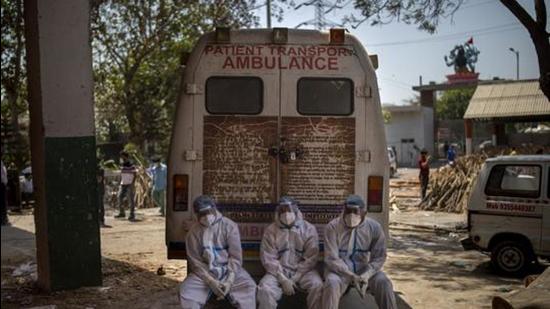Study: Antibodies less effective against Delta variant of coronavirus
In comparison to the Delta variant, which was first found in India, the Alpha variant (first found in the UK) triggered only a 2.3-fold drop in potency of antibodies drawn from recovered Covid-19 patients
There was a six-fold drop in the ability of antibodies from a past infection to neutralise the Delta variant of the Sars-Cov-2, and a greater eight-fold reduction in the potency of antibodies elicited by vaccines, according to a peer-reviewed study led by researchers from India and the UK.

The study, the authors say, combines findings from lab experiments and analysis of breakthrough cases to piece together signs of the Delta variant, or the B.1.617.2, being better at replication and resisting antibodies – these traits helped it rapidly overtake the Alpha (B.1.1.7) variant that was at the time the most transmissible version of the coronavirus.
“We’ve shown that the delta variant is better at replicating and spreading than other commonly-observed variants. There’s also evidence that neutralising antibodies produced as a result of previous infection or vaccination are less effective at stopping this variant. These factors are likely to have contributed to the devastating wave in India during the first quarter of 2021, where as many as half of the cases were individuals who had previously been infected with an earlier variant,” said professor Ravi Gupta from the Cambridge Institute of Therapeutic Immunology and Infectious Disease, who is one of the authors.
In comparison to the Delta variant, which was first found in India, the Alpha variant (first found in the UK) triggered only a 2.3-fold drop in potency of antibodies drawn from recovered Covid-19 patients. The study involved antibodies drawn from people who had a past infection, or received either the Oxford-AstraZeneca vaccine or the Pfizer-BioNTech shot. These were then made to neutralise the Alpha, Beta and Delta variants in a laboratory.
This part of the analysis showed the most evasive variant was Beta (first found in South Africa), followed by Delta and Alpha.
The second part of the study involved analysis of breakthrough infections among 112 healthcare workers in three Delhi hospitals, which showed that most were cases of Delta variant (99 infections) – confirming the mutated virus was more likely to cause disease in vaccinated people compared to other versions of the Sars-Cov-2. The study found a similar drop in the potency of lab-grown antibody therapy such as bamlanivimab and imdevimab.
“Infection in vaccinated healthcare workers with the Delta variant is a significant problem. Although they themselves may only experience mild Covid-19, they risk infecting individuals who have suboptimal immune responses to vaccination due to underlying health conditions – and these patients could then be at risk of severe disease,” said Dr Anurag Agarwal, director, Institute of Genomics and Integrative Biology, who is also part of the study.
The authors suggest due to this risk, infection control measures – such as masking, social distancing, and hand washing – must continue even in “post-vaccination era”.
The study also addresses why the Delta variant appears to be fitter than the others, despite showing a lower antibody resistance than the Beta variant. It cites lab analysis that shows the Delta variant to be more efficient in entering human cells and replicating within.
It achieves this in particular by mutating to make its fusion with the host cell more efficient. Once within a cell, they are also able to replicate more widely as compared to the Alpha variant, according to experiments conducted in epithelial cells (the lining) of the airway and the lungs as well as 3D organoids (mini-organs grown from airway cells).
These clues explain what has been observed around the world, beginning with India in mid-April. The variant quickly swept through the country, overwhelming testing as well as treatment capacities. The variant then pushed up case trajectories in countries like the UK, where a large proportion of the population was vaccinated -- although the wide inoculation rate helped the country avoid its facilities from being overwhelmed, unlike in the case of the Alpha outbreak in the winter.
Get Current Updates on India News, Lok Sabha Election 2024 live, Infosys Q4 Results Live, Elections 2024, Election 2024 Date along with Latest News and Top Headlines from India and around the world.




